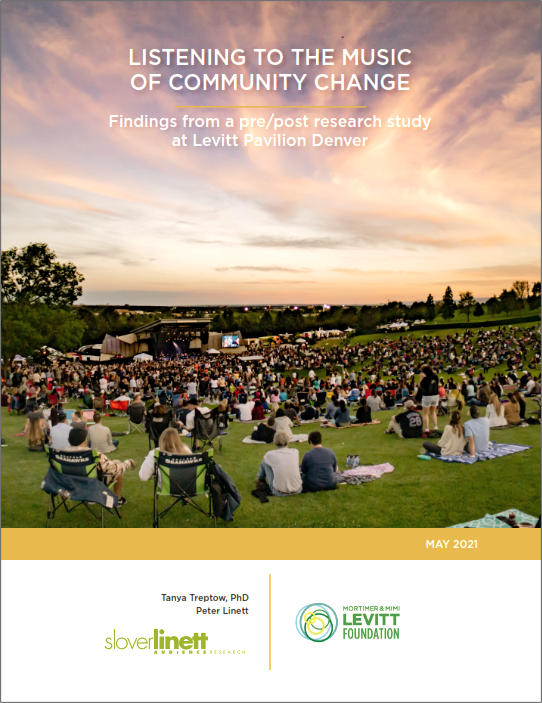Listening To The Music Of Community Change: Findings from a pre/post research study at Levitt Pavilion Denver
This research study, commissioned by the Levitt Foundation, examines the dynamics of community identity, collective memory, and equitable belonging using the Levitt Pavilion Denver music venue as a case study. Using qualitative methods and centering the lived experiences of local residents and park users, Slover Linett examined how the development of the new pavilion and its free outdoor summer concerts have shifted perceptions of a Southwest Denver neighborhood and park over time. The whitepaper offers timely insights for civic leaders and creative placemaking practitioners and funders seeking to build more equitable and thriving public spaces.
Part urban sociology and part outcomes evaluation, the study looked at the Levitt venue’s unique “situatedness” in Denver’s Ruby Hill neighborhood, a largely residential, predominantly low-income Hispanic/Latinx community. The “pre” phase of research was conducted in 2013 before design and construction of Levitt Pavilion Denver began, and the “post” fieldwork took place in 2019, during the pavilion’s third concert season. The whitepaper offers in-depth analysis of the dynamics of collaborative arts infrastructure development and free public programming in a rapidly changing and growing city, and offers recommendations for the field (co-authored with the Levitt Foundation) about how equitable practices and processes can further a sense of belonging while fostering community investment and vitality.
The whitepaper may be read in its entirety here or downloaded below, or you may read the executive summary here, as well as an information sheet here.
As always, we look forward to hearing your thoughts and feedback; please reach out.

